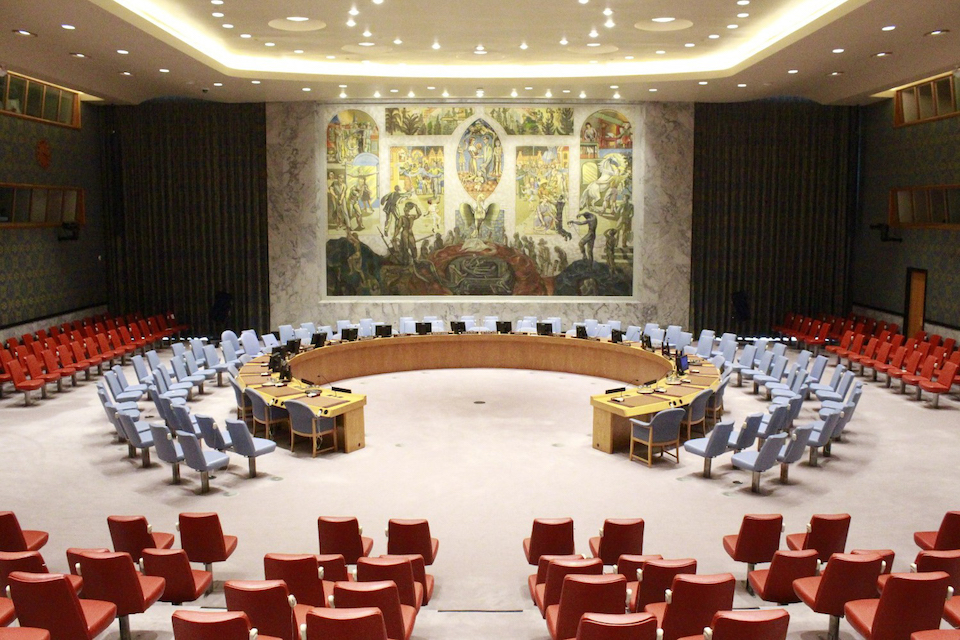We remain determined that Iran must never develop a nuclear weapon and must reverse its nuclear escalation: E3 at the UN Security Council
Joint statement by UK, France and Germany following the Security Council meeting on the implementation of resolution 2231.

Today, the Security Council discussed the implementation of United Nations Security Council聽Resolution 2231, particularly Iran鈥檚 nuclear activity, missile development and continued weapons proliferation inconsistent with that resolution.聽
聽In November, the IAEA Director General yet again issued a report which starkly outlines the deplorable state of Iran鈥檚 commitments under the JCPoA.
The IAEA reports that the total stockpiles of Iran鈥檚 enriched uranium now stand at 22 times the JCPoA limit. Iran鈥檚 stockpiles of high enriched uranium up to 60% are unprecedented for a state without a nuclear weapons programme.聽
Iran has been in violation of its nuclear commitments under the JCPoA, which is endorsed by聽resolution 2231, for more than four years. There is no credible civilian justification for the state of Iran鈥檚 nuclear programme. The current trajectory only brings Iran closer to weapons-related capabilities; this is of utmost concern for international peace and security.
聽Iran鈥檚 ongoing lack of cooperation with the IAEA prevents the IAEA from carrying out vital work to determine the nature of Iran鈥檚 nuclear programme and undermines the global non-proliferation architecture. Iran鈥檚 agreements with the IAEA and its legal obligations must be pursued in full, without further delay, as repeatedly requested by the Director General. It is especially concerning to see Iran flatly deny to the IAEA its legal obligation to implement Modified Code 3.1. All these actions undermine the case that Iran鈥檚 nuclear programme is of an exclusively peaceful nature as well as any confidence the international community has in its wider commitments and obligations.聽
We welcome the Secretary General鈥檚 recognition of the UK鈥檚 evidence exposing Iran鈥檚 proliferation of missiles and missile technologies to non-state actors in the region and beyond, which endanger the region and the whole international community, and were carried out in violation of聽resolution 2231.
Furthermore, while restricted by this resolution, Iran transferred hundreds of UAVs to Russia, deliberately supporting Russia鈥檚 war of aggression against Ukraine. Deliveries took place in the knowledge that Russia uses them to target Ukrainian cities and critical infrastructure. Neither Russia nor Iran have ever sought authorisation for these transfers, which are therefore a breach of聽resolution 2231 by both states. We continue to urge Iran to cease its reckless proliferative activities in the region and beyond.
Iran has developed and tested ballistic missiles and related technologies extensively in complete disregard for this resolution, undermining global non-proliferation principles and architecture. This requires particular scrutiny as resolution 2231 restrictions on Iran鈥檚 missile programme were automatically lifted on 18 October, despite Iran having consistently ignored these restrictions.
Today we must reflect on Iran鈥檚 continued and long-lasting contempt for United Nations Security Council Resolution聽2231 and its restrictions. We remain determined that Iran must never develop a nuclear weapon and must reverse its nuclear escalation. We emphasise once again our determination to find a diplomatic solution to the Iranian nuclear crisis, as demonstrated by our consistent efforts in that regard.